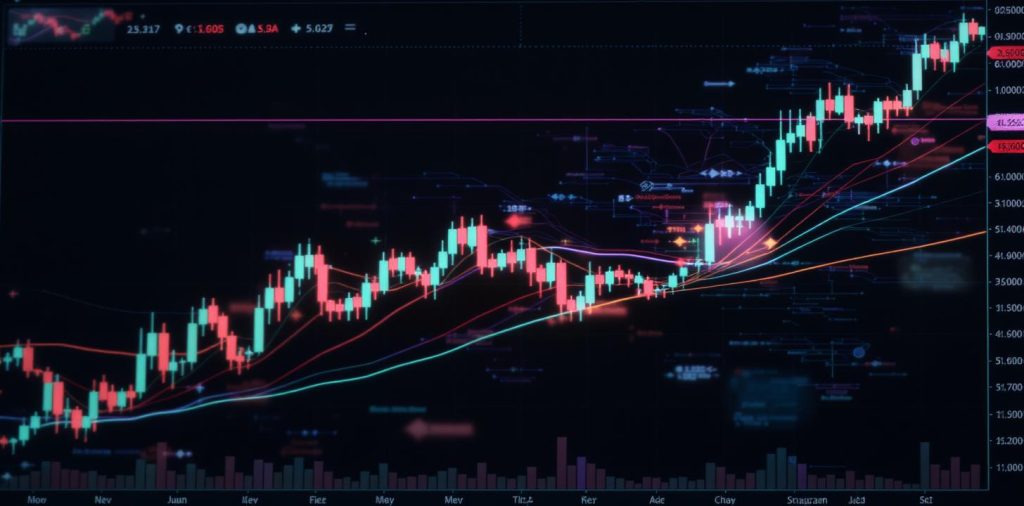Binary options signals are trade suggestions generated by either human analysts or automated systems, designed to help traders decide when and how to place trades. These signals typically include the asset to trade, the direction (call or put), the strike price or level, and the expiry time. The idea is simple: instead of analysing the market yourself, you follow the signal provider’s recommendation and execute the trade.
While this approach is appealing to beginners and those without time to monitor markets, the quality and reliability of binary options signals vary widely. Some signal services are based on genuine analysis or algorithmic strategies, while others are untested, unproven, or outright misleading.

How Signals Work
Binary options signals usually fall into one of two categories: manual or automated.
Manual signals are generated by human analysts who use technical or fundamental analysis to determine likely market moves. These are often shared through email, SMS, Telegram groups, or dedicated dashboards. Traders must manually input the trade on their broker platform based on the signal provided.
Automated signals come from algorithmic systems. These are sometimes connected directly to a trader’s account through a trade copier or API. When the system identifies a trade opportunity, it executes the trade automatically or sends an alert to the user for approval.
A typical binary options signal might look like this:
- Asset: EUR/USD
- Direction: Call
- Entry Price: 1.0720
- Expiry Time: 10:30 AM
The trader would then decide whether to take the trade on their chosen platform.
What Influences Signal Quality
Signal quality depends on the underlying strategy used to generate them. Some providers use momentum indicators, moving averages, or pattern recognition systems. Others incorporate news events or macroeconomic releases.
However, many services operate as black boxes. They offer no explanation of how trades are generated and no transparency on long-term results. Without visibility into the logic behind a signal, traders are essentially gambling on someone else’s guess.
Signal accuracy is also highly dependent on timing. Because binary options have fixed expiry times, a delay of even a few seconds in trade execution can turn a win into a loss. This makes reliability of delivery and broker execution speed critical factors in overall performance.
Signal Scams and Red Flags
The binary options industry has attracted its fair share of scams, and signal services are no exception. BinaryOptionsSignals.com highlights the importance of keeping an eye out for this warning signs:
- Promises of guaranteed profits
- Fake testimonials or paid reviews
- Pressure to sign up with a specific broker via affiliate links
- No proof of past performance or track record
- High subscription fees with no refund policy
Some signals are designed to benefit the signal provider or their affiliated broker, rather than the trader. For example, they may encourage over-trading to generate commissions or provide intentionally poor signals to trigger losses.
If a signal service requires you to deposit with a specific broker to “activate” your subscription, it’s often more about earning referral fees than helping you succeed.
Do Signals Work?
Some traders find value in signals—especially as a learning tool or secondary confirmation method. But they should never be relied on blindly. Even professional traders who use signals still conduct their own analysis, manage risk carefully, and adjust for current market conditions.
No signal provider can offer consistent profits in all market environments. Even well-tested strategies go through periods of drawdown or underperformance. Without proper risk management, one bad day of signals can cause significant losses.
Traders should also be aware that even a good signal doesn’t guarantee a profitable trade. Market slippage, late entry, or misinterpreting a signal can all affect the outcome.
A Safer Approach
If you’re interested in using signals, start with a demo account. Monitor performance over time without risking real money. Look for providers who:
- Share real-time trade history
- Provide detailed analysis or reasoning
- Avoid exaggerated marketing claims
- Offer transparent pricing and cancel-anytime terms
Signals can sometimes help with trade ideas or market awareness, but they are not a shortcut to success. They should be part of a larger strategy—not the whole strategy.
Where to Learn More
For further research on binary options signals, including tips on spotting scams and assessing signal quality, visit binaryoptionssignals.com, which offers resources and reviews on various signal services in the industry.